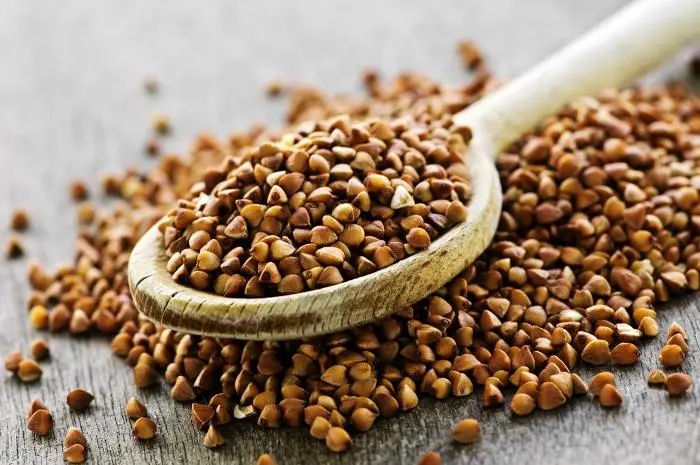On Nutrition: Dealing with fatty liver disease
In recent years, fatty liver disease has become a growing health concern, affecting millions of people worldwide. It is a condition characterized by the accumulation of fat in the liver cells, leading to potential liver damage and impairing its function.
The good news is that fatty liver disease can often be managed and even reversed through proper nutrition and lifestyle changes. In this article, we will explore various aspects of fatty liver disease and learn how nutrition plays a crucial role in dealing with this condition.
Understanding Fatty Liver Disease
Fatty liver disease, also known as hepatic steatosis, can be broadly categorized into two types: non-alcoholic fatty liver disease (NAFLD) and alcoholic fatty liver disease (AFLD).
While AFLD is associated with excessive alcohol consumption, NAFLD is more prevalent and typically linked to obesity, insulin resistance, and metabolic syndrome. The condition develops when the liver’s fat accumulation exceeds normal levels, accounting for more than 5-10% of the liver’s total weight.
Causes of Fatty Liver Disease
Several factors contribute to the development of fatty liver disease. As mentioned earlier, the primary cause of NAFLD is obesity and insulin resistance.
Other common causes include a sedentary lifestyle, unhealthy eating habits, high cholesterol levels, and type 2 diabetes. On the other hand, AFLD is directly linked to the overconsumption of alcohol, which places a significant burden on the liver as it tries to metabolize the alcohol and remove its toxic byproducts.
Symptoms and Diagnosis
Fatty liver disease is often asymptomatic in its early stages, making it challenging to diagnose without medical intervention. As the disease progresses, individuals may experience fatigue, weakness, and discomfort in the upper abdomen.
In some cases, liver function may be compromised, leading to jaundice or fluid retention. Accurate diagnosis requires a combination of physical examinations, blood tests, imaging studies, and sometimes liver biopsy.
Risk Factors
Certain risk factors increase the likelihood of developing fatty liver disease. These include obesity, high blood pressure, high cholesterol, and a family history of liver disease.
Moreover, individuals with type 2 diabetes or metabolic syndrome are more susceptible to NAFLD. For AFLD, the most significant risk factor is the frequency and quantity of alcohol consumption.
Prevention and Lifestyle Changes
Preventing fatty liver disease begins with making lifestyle changes. Maintaining a healthy weight through a balanced diet and regular exercise is essential. Reducing alcohol consumption is critical for preventing AFLD, while avoiding excessive consumption of sugary and fatty foods is essential for preventing NAFLD.
Dietary Recommendations
A well-balanced diet can significantly impact the management of fatty liver disease. Emphasize the consumption of fruits, vegetables, whole grains, and lean proteins. Reduce intake of saturated and trans fats, as well as refined sugars. Incorporate foods rich in antioxidants and anti-inflammatory properties, such as green tea, turmeric, and fatty fish like salmon.
Exercise and Physical Activity
Regular physical activity is beneficial for overall health and can help manage fatty liver disease. Engage in aerobic exercises like walking, jogging, or swimming to improve liver function and promote weight loss. Strength training exercises can also be beneficial, as they improve insulin sensitivity and help reduce fat accumulation in the liver.
Medical Treatments
For individuals with severe fatty liver disease or associated complications, medical interventions may be necessary. Medications aimed at controlling cholesterol, blood pressure, and diabetes can help manage the condition effectively. Additionally, vitamin E supplements may be prescribed to some patients with NAFLD.
Herbal and Natural Remedies
Several herbal and natural remedies have shown promise in managing fatty liver disease. Milk thistle, dandelion root, and artichoke extract are among the most commonly used herbal supplements for liver health. However, it is essential to consult with a healthcare professional before using any natural remedies to ensure their safety and effectiveness.
Potential Complications
If left unmanaged, fatty liver disease can progress to more severe conditions such as non-alcoholic steatohepatitis (NASH), liver fibrosis, cirrhosis, and even liver cancer. It is crucial to detect and manage the disease early on to prevent these complications.
Importance of Regular Check-ups
Regular check-ups and screenings are essential for individuals at risk of fatty liver disease. These screenings help detect the condition in its early stages, allowing for timely intervention and lifestyle adjustments.
Support and Coping Strategies
Dealing with fatty liver disease can be emotionally challenging for individuals and their families. Seeking support from healthcare professionals, support groups, and loved ones can be beneficial. Engaging in stress-reducing activities like yoga, meditation, or counseling can also aid in coping with the condition.
Myth vs. Fact: Common Misconceptions
There are several myths surrounding fatty liver disease. For instance, many people believe that only heavy alcohol drinkers can develop fatty liver disease, but as we discussed earlier, NAFLD is prevalent among non-drinkers. Dispelling these myths can help raise awareness and promote early diagnosis and management.
Conclusion
Fatty liver disease is a concerning health issue that requires attention and proactive management. By adopting a healthy lifestyle, focusing on nutrition, and seeking appropriate medical care, individuals can take charge of their liver health and potentially reverse the condition. Remember, early detection and intervention are crucial for preventing complications and leading a healthier life.



